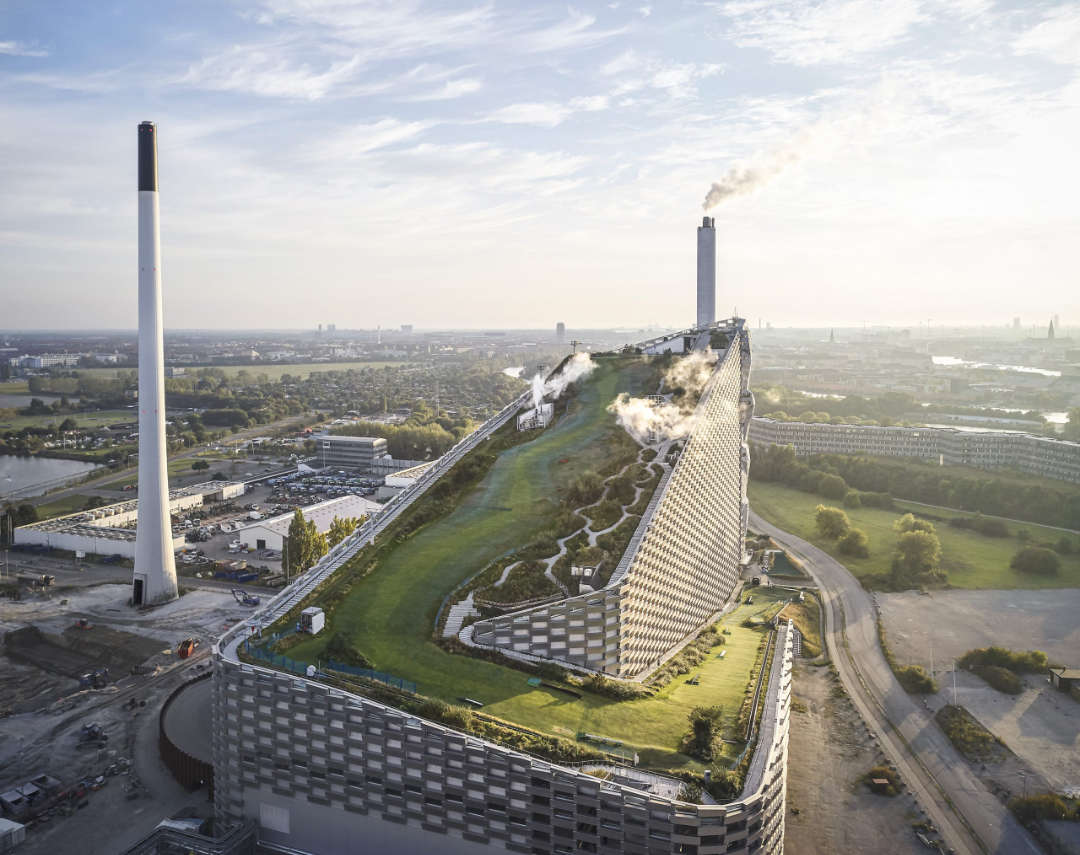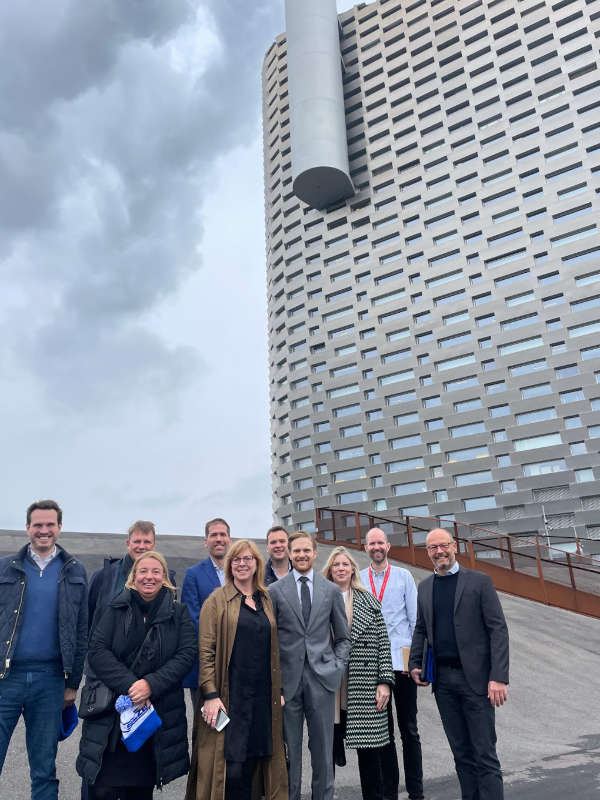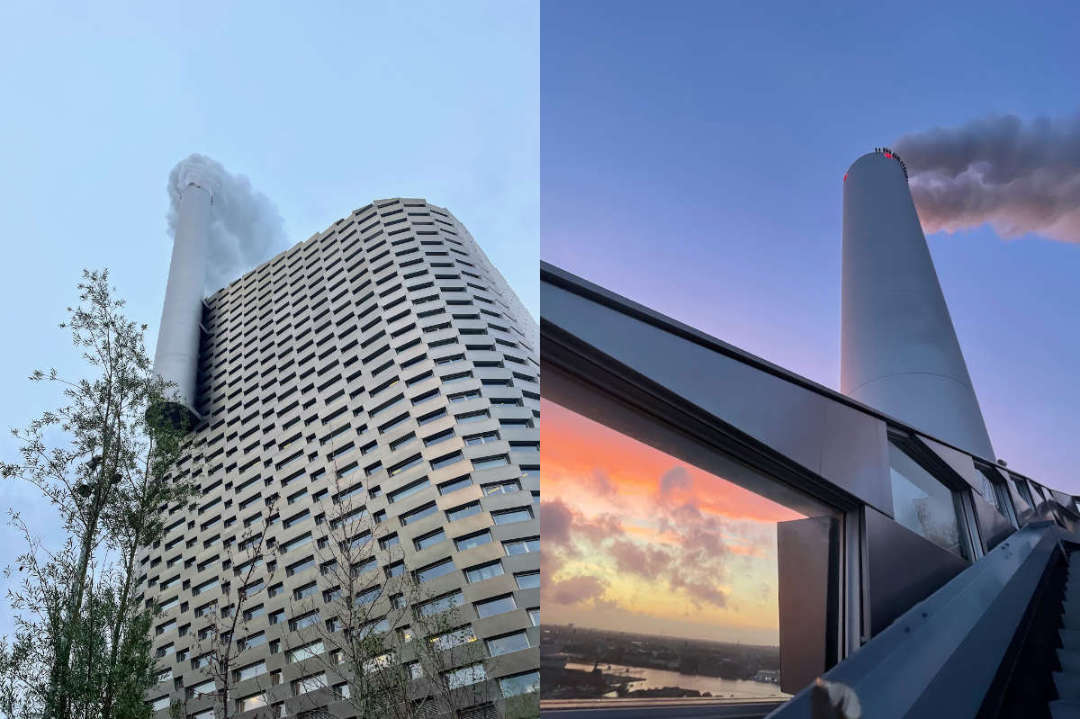About Us
News
Embedding circularity

Worn Again Technologies builds on its ambition to develop textile recycling plants integrated into the urban ecosystem.
Worn Again Technologies (WAT) and its strategic partners gathered in Copenhagen to discuss the next steps towards building modern polymer recycling facilities for textiles. Drawing on inspiration from Amager Bakke, an energy-from-waste plant with an outdoor sports center on its roof, the organization aims to engage communities and change perceptions around manufacturing, both environmentally and culturally.

After completing extensive feasibility and pilot scale tests, as well as laying out its future vision of the textile recycling industry, Worn Again Technologies is getting closer to building its first full-scale plant. The technology relies on innovative polymer separation and purification technologies to turn non-reusable, hard to recycle polyester and cotton fiber blends into new, high-quality materials for making new textiles.
The two-day gathering enabled a compelling exchange of insights and ideas between WAT management and strategic partners. The aim is to shift the paradigm and perception from isolated recycling plants to social architectural landmarks engaged with community, supporting the textile industry commitment of net zero CO2 emissions by 2050.

Torsten Wintergerste, Chairman of Worn Again Technologies Board of Directors, explains: “Creating a successful circular economy for textiles requires more than an innovative recycling technology and all stakeholders from consumers to retailers and law makers need to connect and work together for a cleaner future.”
Copenhagen offered an ideal location for the event, as the capital aims to become the world’s first carbon-free city. Even more, attendees were able to draw inspiration from Amager Bakke, also known as Copenhill, a combined heat and power waste-to-energy plant that is also an artificial ski slope and sports attraction.
Jacob Simonsen, CEO at Amager Bakke, comments: “We were delighted to host Worn Again Technologies, as we share a common passion and vision in improving the sustainability of industry. We both believe that facilities can coexist with community landmarks and engage the public. It is exciting to see how Worn Again Technologies is planning to create the future of textile recycling. As societies, we face a huge textile challenge. This is why I applaud companies investing in technology aiming at reducing textile waste and turning it into a resource.”
Erik Koep, CEO at Worn Again Technologies, concludes: “The meeting was extremely productive. We were able to take significant steps forward with our plans for a full-scale textile recycling plant. In particular, visiting Amager Bakke was key to stimulating the discussion on how Worn Again Technologies’ facilities can integrate into urban ecosystems and contribute in a variety of ways. We aim to develop facilities that will benefit local communities as well as supply the textile industry, all while creating a circular economy.”
About Worn Again Technologies
Worn Again Technologies was founded in East London in 2005, with a vision to eradicate textile waste. Since 2012, the company has been in development of a unique polymer recycling technology which separates, decontaminates and extracts polyester and cellulose (from cotton) from non-reusable textiles. The dual PET and cellulose outputs can be reintroduced into supply chains to become new fibre, textiles and products as part of a continual cycle.
The regenerative recycling technology is being brought to life by an expert team and strategic partners who have a shared ambition of creating a circular textiles industry. The company has valued strategic investors including H&M Group, Sulzer Chemtech (global market leader in innovative mass transfer, static mixing and polymer solutions for petrochemicals, refining and LNG), Oerlikon (leading materials and surface solutions provider), Mexico-based Himes Corporation (a garment manufacturer) and Directex (a textiles producer), as well as the support of influential brands and partners, such as Kering, ASICS Europe, Sympatex, Dibella and Dhana.
In November 2017, Worn Again Technologies was invited to become part of the Fashion for Good scaling programme. In 2019, Worn Again Technologies received the ANDAM Innovation Prize, the PCIAW Outstanding Contribution to the Textile Industry and the ‘One to Watch’ at the Global Good Awards. In 2019, the company’s Founder, Cyndi Rhoades, was also a finalist for The Circular Economy Awards Leadership award.
Worn Again Technologies is also a signatory and key contributor to the UNFCCC Fashion Industry Charter for Climate Action.

